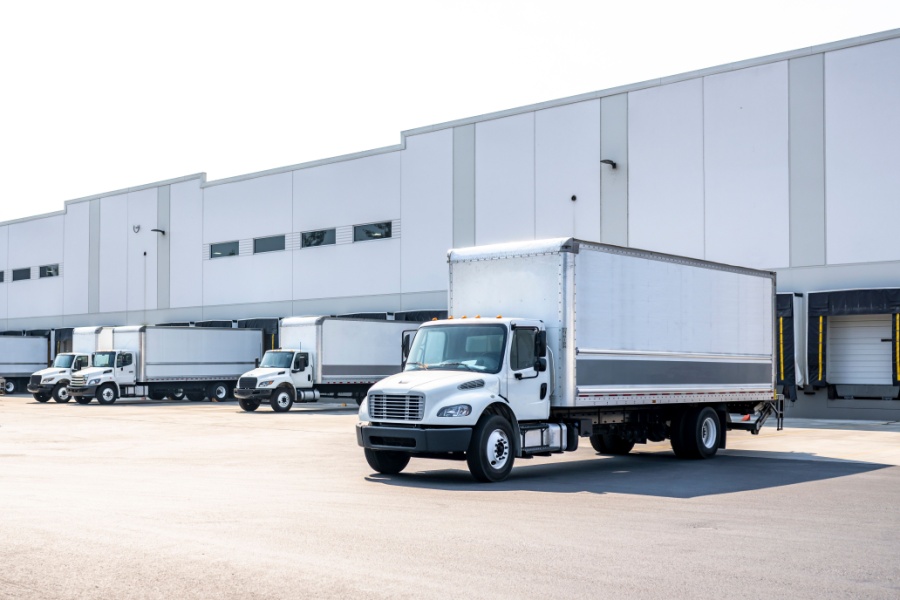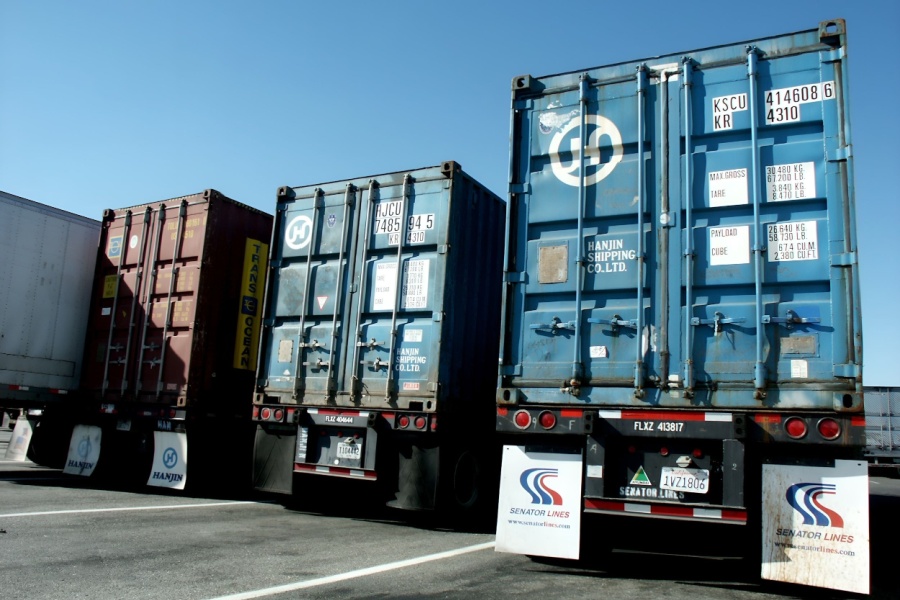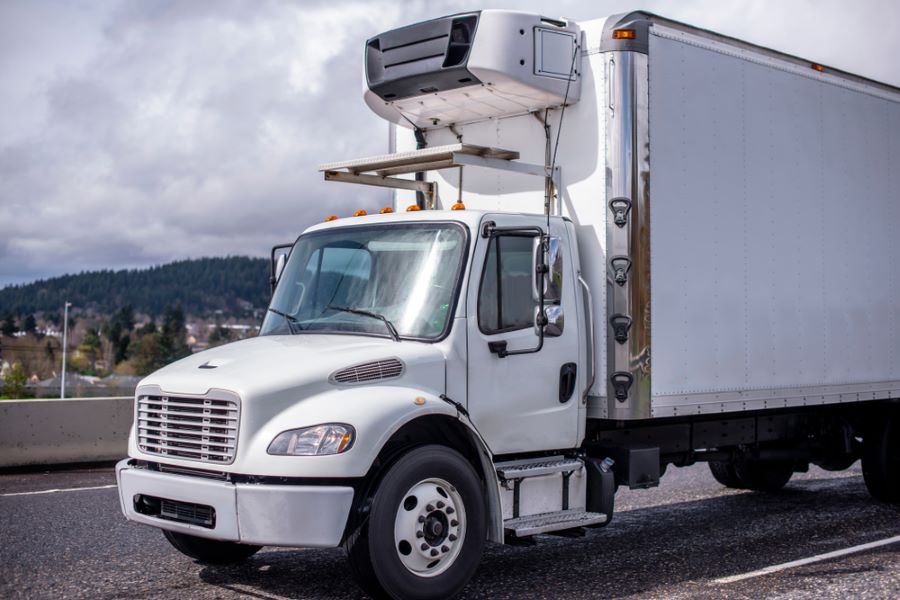Key Takeaways:
- A KPMG and Ryder study shows fleets can save up to 19% with full-service leases.
- Full-service leases offer cost predictability, risk transfer, and reduced administrative burdens.
- Unbundled leases provide flexibility but can lead to complexity and hidden costs.
- Technician shortages and advanced vehicle technologies make full-service leasing a more advantageous option.
In the world of fleet management, leasing is often perceived as a straightforward method to reduce monthly payments.
However, the true value of leasing lies in understanding the total cost of ownership (TCO). A study conducted by KPMG in collaboration with Ryder reveals that fleets can achieve up to 19% savings with a full-service lease compared to outright ownership.
This significant finding challenges the conventional wisdom that ownership is always more cost-effective in the long run.
That’s why, in this article, we’ll explore the nuances of full-service (bundled) versus unbundled leases, uncover what fleets often miss in their calculations, and demonstrate why a Ryder Full Service Lease delivers unparalleled long-term value.
What’s a Full-Service (Bundled) Lease?
A full-service lease, or bundled lease, is a comprehensive leasing solution. A single monthly payment encompasses a wide range of services, including the truck itself, financing, maintenance, licensing, roadside assistance, safety systems, and disposal.
This bundled approach offers several key advantages that make it an attractive option for fleet managers seeking predictability and reduced administrative burdens.
One of the primary benefits of a full-service lease is the cost predictability it offers. With a fixed monthly payment, fleet managers can accurately forecast their expenses, avoiding the financial uncertainty associated with variable costs.
This predictability extends to maintenance and repairs, as the lease provider, such as Ryder, manages these aspects through a vast network of service locations. Ryder offers access to more than 760 maintenance facilities staffed by 5,000 certified technicians, ensuring that fleets receive timely and efficient service.
Risk transfer is another significant advantage of a full-service lease. By outsourcing maintenance, compliance, and remarketing responsibilities to the lease provider, fleets can mitigate the risks associated with these functions.
This risk transfer alleviates the administrative burden on fleet managers, ensuring that critical tasks are handled by experts with specialized knowledge and resources.
Plus, a full-service lease provides access to national service networks, which can be particularly beneficial for fleets operating across multiple regions. This access ensures that vehicles are consistently maintained, regardless of their location, thereby enhancing overall fleet reliability and performance.
What’s an Unbundled Lease?
An unbundled lease involves truck financing with separate line-item contracts for services such as maintenance, compliance, disposal, and remarketing. This approach allows fleets to maintain control over these functions, offering a level of transparency that some fleet managers find appealing.
Proponents of unbundled leases argue that this model offers greater flexibility and the potential for cost savings, provided it is managed effectively.
By negotiating individual contracts for each service, fleets can tailor their arrangements to suit their specific needs and potentially reduce costs in areas where they have expertise or economies of scale.
Fleet Advantage and other advocates of unbundled leases emphasize the transparency of costs as a key benefit. By breaking down expenses into individual components, fleet managers can understand where their money is going and identify opportunities for optimization.
However, the perceived benefits of unbundled leases require closer examination. While transparency and flexibility are appealing, they can also lead to fragmentation and increased complexity.
Managing multiple contracts and service providers requires significant administrative effort and expertise, which may not work for all fleets.
The True Cost of Truck Leasing: What Fleets Often Miss
The KPMG and Ryder TCO analysis highlights the potential for significant savings with a full-service lease, shedding light on the importance of considering the total cost of ownership rather than focusing solely on upfront costs.
Fleets often underestimate several hidden cost categories that can significantly impact their bottom line.
- Maintenance and downtime are critical factors that fleets frequently overlook. With the increasing complexity of modern trucks, including advanced technology and emissions systems, maintenance costs can quickly escalate.
- Technician shortages further exacerbate this issue, leading to longer downtimes and increased expenses. A recent report by the American Transportation Research Institute notes that approximately 19.3% of technician positions remain unfilled. A full-service lease mitigates these challenges by providing access to a network of skilled technicians and ensuring timely maintenance and repairs.
- Administration and compliance costs are another area where fleets may underestimate expenses. Licensing, fuel tax reporting, safety inspections, and legal exposure all require dedicated resources and expertise. By outsourcing these functions to a lease provider, fleets can reduce administrative burdens and ensure compliance with regulatory requirements.
- Residual value risk is also a significant consideration for fleets that own their vehicles. The uncertainty associated with vehicle resale values can lead to financial losses if not managed effectively. Lease providers, with their expertise in remarketing, are the perfect answer for organizations that want to preserve their capital.
As a further consideration, substitutions and roadside assistance are often hard to quantify until they are needed.
Unexpected breakdowns or accidents can lead to costly disruptions. However, a full-service lease provides access to substitute, or replacement, vehicles and roadside assistance, thereby minimizing downtime and ensuring operational continuity.
As WorkTruck points out, “It’s not just about the truck: it’s about the lifecycle.” Fleets must consider the entire lifecycle of their vehicles, from acquisition to disposal, to truly understand the total cost of ownership.
A full-service lease simplifies this process by providing a comprehensive solution that addresses all aspects of vehicle management, allowing fleets to focus on their core operations without the distraction of managing multiple service providers.
Full-Service Lease Benefits Line by Line
A full-service lease offers benefits that extend beyond predictable costs. One of the most significant advantages is the reduction of downtime through efficient maintenance and repair services.
The extensive technician network offered by Ryder ensures that vehicles are serviced promptly, minimizing disruptions and keeping fleets on the road.
This level of service is particularly valuable in today’s environment, where technician shortages and complex vehicle technologies can result in extended downtime.
#1: Risk Transfer
Risk transfer is another critical benefit of a full-service lease. While compliance falls in the hands of the lessee, a full-service lease provider like Ryder who manages one of the biggest fleets in North America provides help with legal, compliance, and remarketing responsibilities, so fleets can mitigate potential liabilities and focus on their primary business objectives.
This risk assistance also extends to vehicle remarketing, where lease providers leverage their expertise to maximize residual values and reduce financial exposure for fleets.
#2: Driver Experience
Driver experience is enhanced with a full-service lease, as newer, well-maintained trucks improve safety and retention.
Drivers are more likely to stay with a company that provides reliable, comfortable vehicles, reducing turnover and associated costs. Additionally, well-maintained vehicles are less prone to breakdowns, enhancing safety and reducing the risk of accidents.
#3: Future-Proof
Future-proofing is another advantage of a full-service lease.
As the industry transitions to more technology advanced vehicles, having a partner like Ryder that manages the entire vehicle lifecycle can ease this transition.
Our expertise in these emerging technologies ensures that fleets are not left behind as the industry evolves.
A compelling case study is Turkey Hill, a Ryder customer that benefited significantly from a full-service lease.
By partnering with Ryder, Turkey Hill was able to reduce costs, improve vehicle uptime, minimize losses, and enhance driver peace of mind, demonstrating the tangible benefits of a full-service lease.
When Unbundling Can Work and Why It Usually Doesn’t
While unbundled leases can be effective for very large fleets with in-house maintenance shops, sophisticated data systems, and remarketing expertise, they are not suitable for every fleet.
- Most fleets underestimate the administrative burden and lack the scale needed to manage multiple service providers effectively.
- The KPMG study highlights that transparency does not necessarily equate to savings if fleets do not track every cost category meticulously.
- Flexibility, often touted as a benefit of unbundled leases, can lead to fragmentation without the necessary scale to manage it effectively. Cheaper maintenance and repair costs today can result in higher downtime costs tomorrow if not managed properly. For most fleets, the complexity and hidden costs associated with unbundled leases outweigh the perceived benefits.
The Road Ahead: Why Bundled Fleet Leasing Matters More Today
The trucking industry is undergoing significant changes, driven by advancements in emissions systems, electrification, and telematics.
As these technologies become more prevalent, the complexity and cost of maintaining and repairing vehicles will increase. Technician shortages will exacerbate these challenges, making it more difficult for fleets to manage their vehicles effectively.
Full-service leases by Ryder ensure that fleets are not left behind in this transformation. By providing a strategic partnership rather than transactional contracts, Ryder helps fleets navigate the complexities of emerging technologies and regulatory requirements.
This partnership approach positions fleets for long-term success, allowing them to focus on their core operations while Ryder manages the intricacies of vehicle management.
Unlock Long-Term Value with Full-Service Fleet Leasing
The bottom line? While unbundled truck leasing may appear cheaper on paper, the comprehensive analysis backed by KPMG demonstrates that a full-service lease offers superior value. With predictable costs, reduced risk, and expert support, a Ryder Full Service Lease provides fleets with the tools they need to succeed in an increasingly complex industry.
To see how much your fleet could save, try our TCO analysis tool. Embrace the future of fleet management with confidence, knowing that you have a strategic partner by your side.




